In today’s fast-paced world, nurturing self-love and confidence can transform how you navigate life’s challenges. Building a positive relationship with yourself doesn’t happen overnight, but with consistent practice and patience, you can develop lasting self-esteem that empowers you through difficult times. Self-love isn’t selfish—it’s essential for your mental wellbeing and helps create the foundation for healthy relationships with others.
Taking small steps each day to honor your needs and celebrate your unique qualities can lead to profound changes in how you perceive yourself. Whether it’s through mindful self-care routines, recognizing your achievements, or setting healthy boundaries, these practices contribute to a stronger sense of self-worth. The journey to confidence begins with acknowledging your inherent value and treating yourself with the same kindness you offer to loved ones.
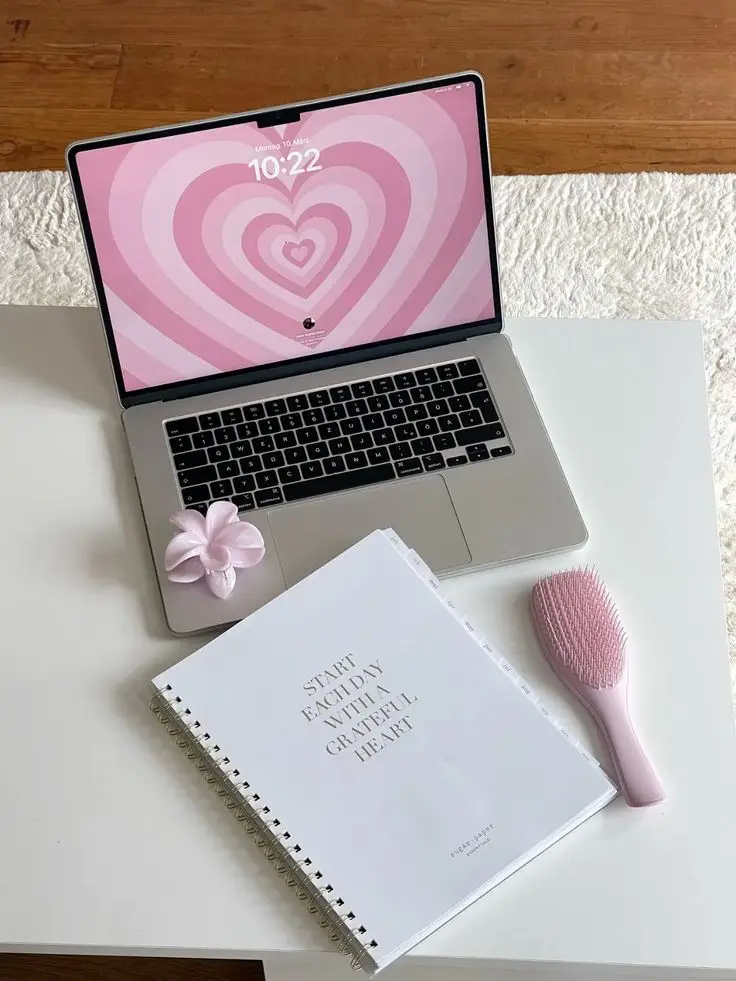

1) Practice daily positive affirmations
Positive affirmations are powerful statements that can transform your mindset and boost your self-esteem when practiced regularly. By speaking kind words to yourself, you actively counter negative thoughts that may hold you back from embracing your true potential.
Start your morning by looking in the mirror and saying phrases like “I am confident,” “I am powerful,” or “I am getting better every day.” These simple statements can shift your perspective and set a positive tone for your day ahead.
Remember that consistency is key with affirmations. Try incorporating them into your daily routine, perhaps during your morning coffee or before bedtime. You might find it helpful to write them down in a journal or set reminders on your phone.
Focus on affirmations that resonate with you personally. Statements such as “I love the person I am and the person I am becoming” or “Every challenge is an opportunity for growth” can help reinforce your strengths and unique qualities.
Begin small if affirmations feel awkward at first. Start with just two or three that feel authentic to you, then gradually build more into your practice as you become comfortable with the process.
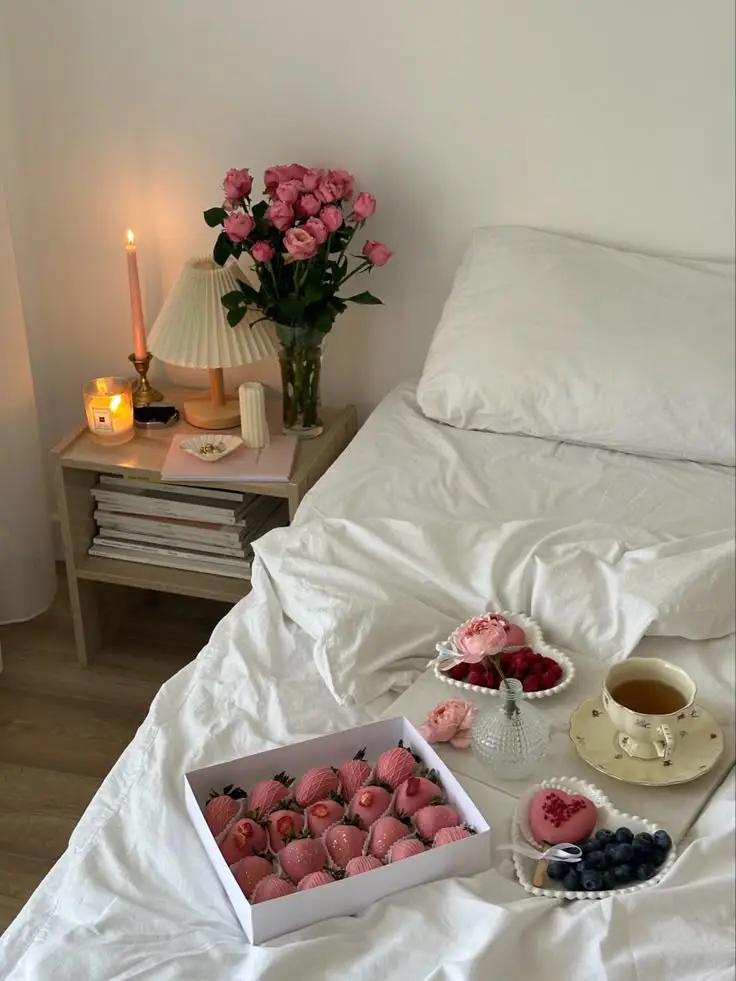
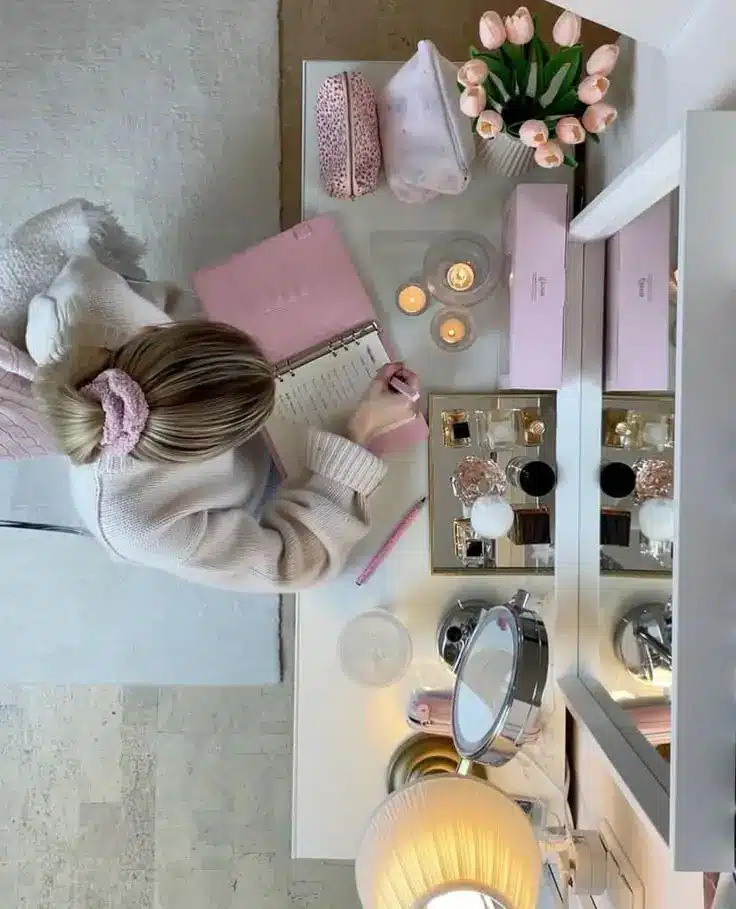
2) Create and enjoy a mood-boosting playlist
Music has a powerful effect on your emotions and can quickly shift your mindset. Creating a playlist filled with songs that make you feel confident and strong is a simple yet effective self-love practice.
Choose tracks that resonate with you personally and evoke positive feelings. Songs with empowering lyrics or upbeat tempos are particularly effective for boosting confidence.
Artists like Lady Gaga, Demi Lovato, and KT Tunstall offer great options for your confidence playlist. “Confident” by Demi Lovato or “Just Dance” by Lady Gaga can instantly lift your spirits when you need it most.
Don’t limit yourself to mainstream hits. Include songs that have special meaning to you or remind you of times when you felt your best.
Use your playlist strategically before important moments in your day. Playing it before a big meeting, a date, or any situation where you need extra confidence can make a significant difference in how you feel.
Remember to update your playlist regularly with new discoveries that make you feel amazing. The act of curating music that uplifts you is itself an act of self-love.

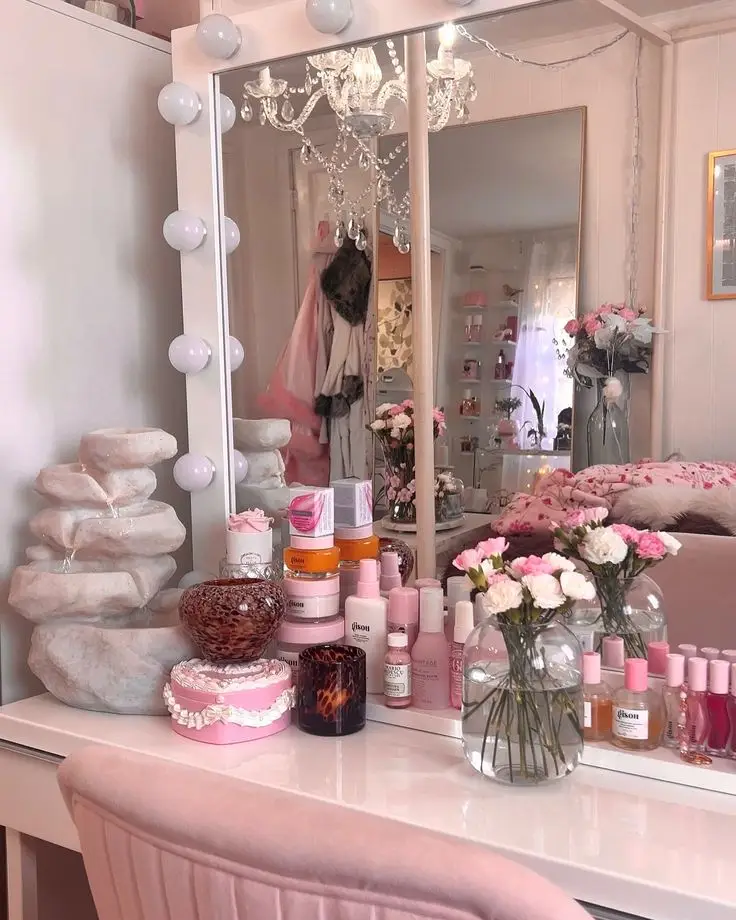
3) Set personal boundaries for self-care
Establishing healthy boundaries is essential for your mental wellbeing and self-love journey. Boundaries help you retain your identity while preventing others from taking advantage of you or your time. They serve as personal guidelines that define what behaviors you will accept from others.
Being clear about your limits requires self-awareness and honest communication. You deserve to protect your energy and emotional health by recognizing when to say no to additional responsibilities or requests that drain you.
Setting boundaries isn’t selfish—it’s a powerful form of self-care. When you communicate your needs clearly, you actually promote healthier relationships with those around you. People will better understand your limits and respect them.
Try writing down specific boundaries you want to establish in different areas of your life. Create simple scripts for communicating these boundaries to others when needed. Remember that maintaining boundaries is an ongoing practice rather than a one-time declaration.
As you become more comfortable setting limits, you’ll likely notice improvements in your self-esteem and overall happiness. Your boundaries will help you quiet negative voices and take control of your life in positive ways.
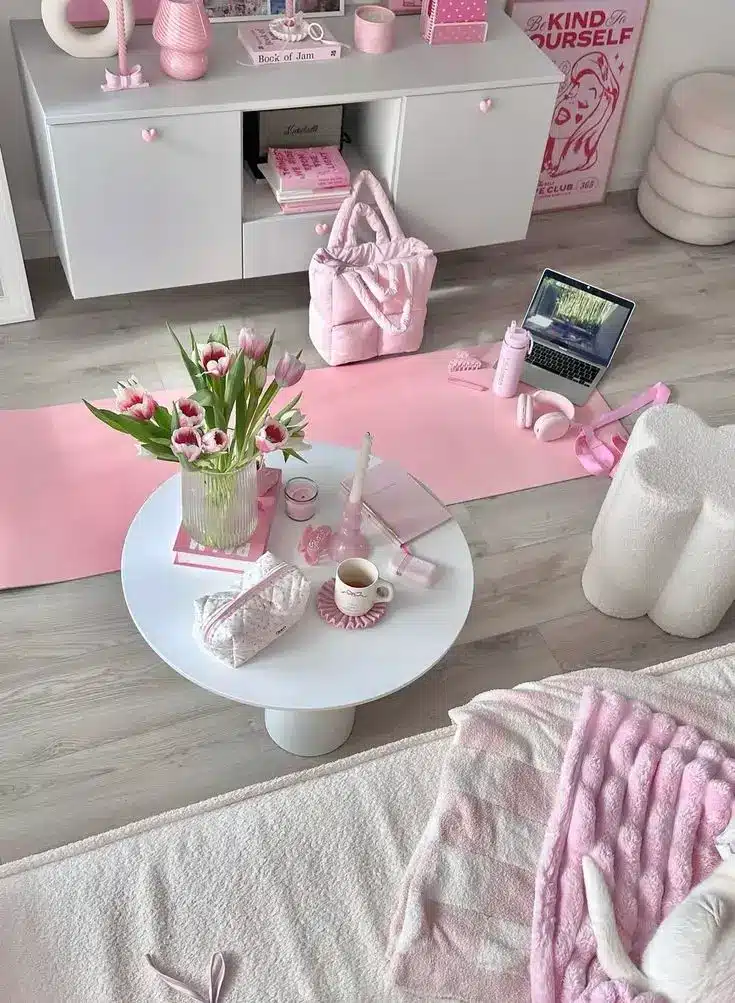

4) Engage in regular physical exercise
Physical activity isn’t just great for your body—it’s a powerful tool for boosting your self-confidence too. When you exercise regularly, your brain releases endorphins that create positive feelings and reduce stress.
Strength training can be particularly effective for building self-confidence. As you see yourself getting stronger and accomplishing new fitness goals, your sense of capability grows beyond the gym.
Yoga combines physical movement with mindfulness, helping you connect with your body in a positive way. This mind-body connection can foster greater self-acceptance and confidence.
Activities like running, dancing, or martial arts can help you appreciate what your body can do rather than focusing on how it looks. This shift in perspective is key to developing a healthier relationship with yourself.
Group fitness classes provide both exercise benefits and social connection. Sharing the experience with others can make working out more enjoyable while building supportive relationships.
Even just 30 minutes of moderate exercise most days can significantly improve your mood and self-perception. The key is finding activities you genuinely enjoy so you’ll stick with them.
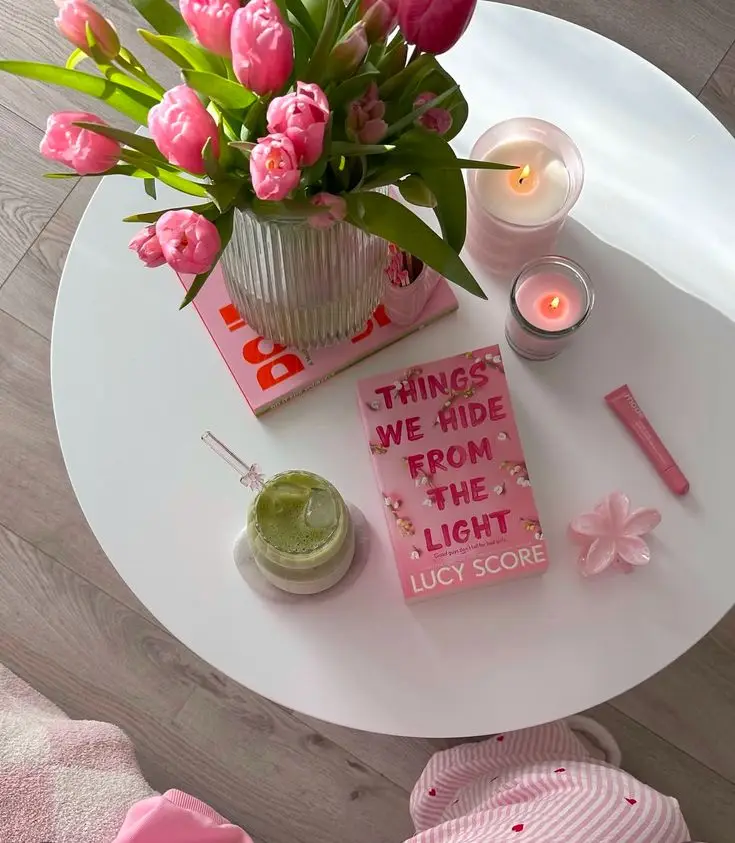
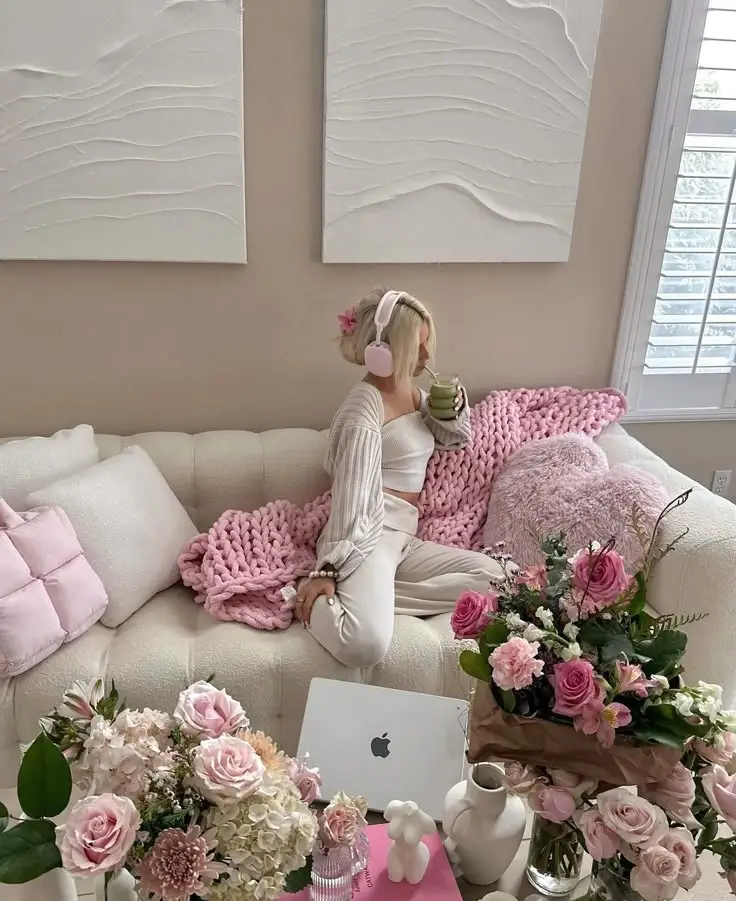
5) Try mindful meditation for inner peace
Mindful meditation is a powerful practice that can help you cultivate inner peace and boost your self-confidence. By taking just a few minutes each day to sit quietly and focus on your breath, you can transform feelings of self-doubt into genuine self-appreciation.
Find a quiet space where you won’t be disturbed, sit comfortably, and gently close your eyes. Pay attention to the sensation of your breath as it enters and leaves your body, anchoring yourself to the present moment.
When negative thoughts about yourself arise, acknowledge them without judgment and let them pass like clouds in the sky. This conscious control of attention can be redirected toward noticing the beauty and joy in your life and within yourself.
Even just 5 minutes of meditation can help shift your perspective from “I’m not good enough” to recognizing your inherent worth. Regular practice strengthens your ability to respond to challenges with calm confidence rather than anxiety.
Remember that self-love meditation isn’t about forcing positive thoughts. It’s about creating space to nurture self-compassion and respect for yourself just as you are.

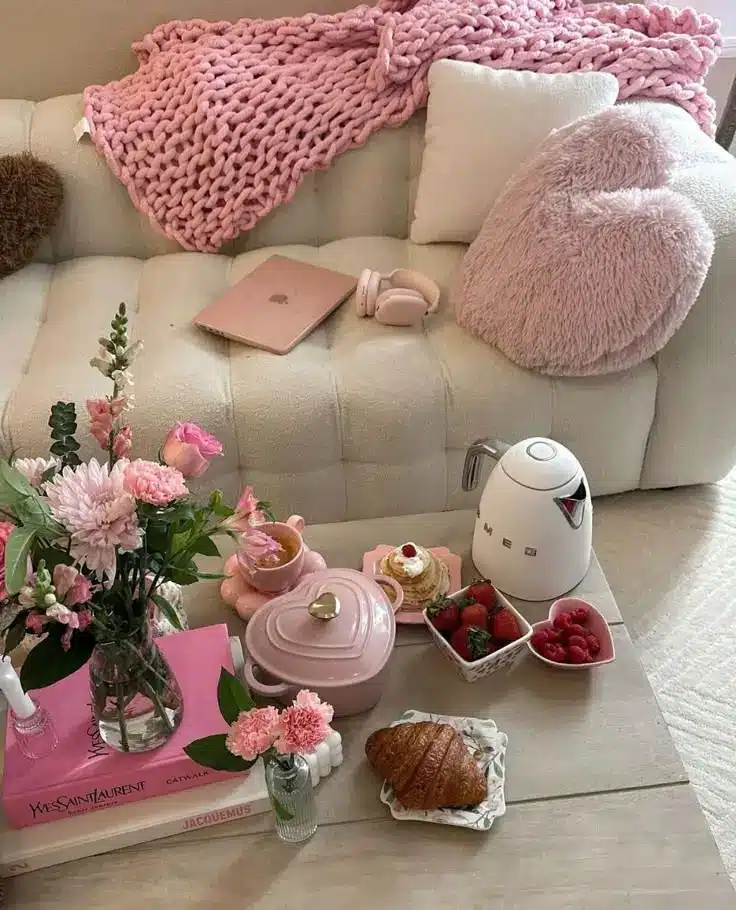
Understanding Self-Love
Self-love forms the foundation of genuine confidence and emotional well-being. It involves recognizing your inherent worth and treating yourself with the same kindness you would offer to someone you care about deeply.
The Importance of Self-Love in Everyday Life
Self-love acts as a powerful protective barrier against negative influences in your daily life. When you genuinely appreciate yourself, you naturally set healthier boundaries with others and make choices that honor your well-being.
Your relationship with yourself influences every other relationship in your life. Learning to love yourself isn’t selfish—it’s necessary for authentic connections with others.
Self-love practices help you navigate difficult emotions with greater ease. Instead of harsh self-judgment when facing challenges, you can approach yourself with understanding and compassion.
Research shows that people who practice self-love generally experience lower levels of anxiety and depression. This emotional resilience helps you bounce back more quickly from life’s inevitable setbacks.
Common Misconceptions About Self-Love
Many people confuse self-love with narcissism, but they’re fundamentally different. Self-love is about healthy self-regard, while narcissism involves an inflated sense of importance and lack of empathy for others.
Self-love doesn’t mean ignoring your flaws or avoiding self-improvement. Rather, it means accepting yourself fully while still working toward positive change from a place of compassion.
Another misconception is that self-love is just about bubble baths and spa days. While self-care activities matter, genuine self-love runs deeper—it’s about how you talk to yourself and the beliefs you hold about your worth.
The idea that self-love comes naturally is misleading for many. In reality, it’s often a skill that needs to be practiced and developed, especially if you’ve spent years engaging in self-criticism.
Building Confidence
Building confidence is a journey that involves understanding your worth and learning to appreciate your unique qualities. The process requires consistent effort but yields significant rewards in how you perceive yourself and approach life’s challenges.
Difference Between Confidence and Self-Esteem
Confidence refers to your belief in your abilities to succeed in specific situations or accomplish certain tasks. Self-esteem, however, relates to your overall sense of self-worth and personal value.
While they’re connected, you can have high confidence in some areas (like work skills) but still struggle with self-esteem. Understanding this distinction helps you target your personal development more effectively.
Many people mistakenly focus solely on building confidence without addressing underlying self-esteem issues. For balanced growth, you should work on both aspects simultaneously.
Try identifying specific skills you’d like to improve while also practicing self-acceptance. This dual approach creates a solid foundation for genuine confidence that doesn’t fluctuate dramatically with circumstances.
The Role of Positive Self-Talk
The way you speak to yourself dramatically influences your confidence levels. Negative self-talk can undermine your efforts and reinforce limiting beliefs about your capabilities.
Start by becoming aware of your inner dialogue. When you catch yourself thinking “I can’t do this” or “I’ll probably fail,” consciously replace these thoughts with more supportive statements like “I’m learning” or “I can handle this challenge.”
Effective positive self-talk techniques:
- Use affirmations that feel authentic to you
- Speak to yourself as you would to a good friend
- Focus on growth rather than perfection
- Acknowledge your progress and small wins
Practice makes perfect. Initially, positive self-talk might feel unnatural, but with consistent practice, it becomes your default thinking pattern and a powerful tool for building lasting confidence.






